The National Assembly 's mettle in the period of strong innovation
Looking back over the past 3 years of the 15th term, we can clearly see the proactive, decisive and creative legislative spirit. The fact that dozens of major laws were amended and many urgent policies were issued following a shortened process shows the National Assembly's efforts to promptly respond to practical requirements. The Land Law, Housing Law, Real Estate Business Law, laws related to the organization of the apparatus and economic development in the new context... all demonstrate the vision of a legal system that opens the way, not just follows life.
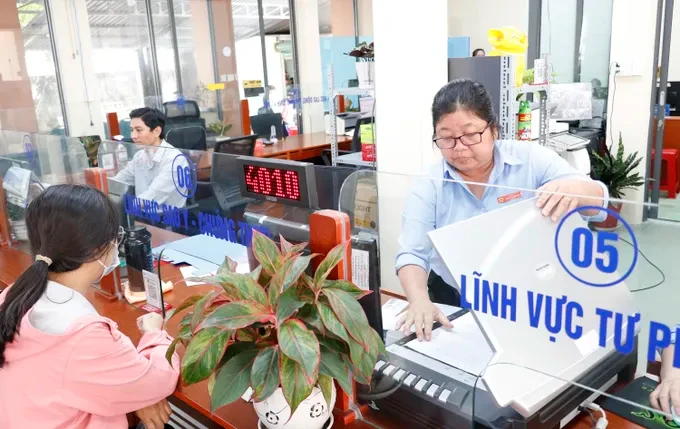
That spirit of innovation is particularly evident in the way the 15th National Assembly organizes the legislative process. Law-making has been shifted from “management” to “development creation”, from “pre-inspection” to “post-inspection”; many draft laws with open and creative mechanisms and policies have contributed to perfecting the socialist rule-of-law state and the socialist-oriented market economic institution, promptly removing “bottlenecks” and “knots” in mechanisms. As of the 10th Session, the National Assembly has passed about 180 laws, ordinances and resolutions, the most ever.
Expanding the scope of consultation, enhancing dialogue, mobilizing the participation of experts, scientists, the business community and the people have gradually approached the standards of a modern parliament. However, reality also poses many unavoidable challenges. The large workload, the rapid pace of change in economic and social life, and new requirements from the two-level local government organization model have forced some legislative contents to be continuously adjusted. Many laws, when put into practice, have revealed gaps, causing the grassroots to struggle in implementation; at the same time, regulations related to decentralization, supervision, and accountability in the two-level local government model are still scattered, not forming a unified framework.
In that context, the first-ever Law-making Forum was held as an important step, not only to evaluate and review the legislative journey of the XV term, but also to open a new approach for the coming period - the period of streamlining the apparatus, modern governance and unprecedented requirements from the digital age.
Urgent requirements from the two-tier local government model
From the practice of localities implementing the 2-level local government model, it can be seen that a series of legal issues are emerging and need to be clearly "identified". Not only is it a matter of streamlining the focal points, this model leads to a comprehensive change in the way the government operates, the relationship between levels, the way resources are allocated, accountability and especially the role of elected bodies at the grassroots level. The absence of the district level means that communes and provinces have to directly interact in a much larger volume of tasks. Complex areas such as land, construction order management, grassroots budgets or handling complaints and denunciations have all become obvious challenges.
Mr. Le Van Cuong - a voter in Truong Vinh ward, Nghe An province shared that when there is no longer an intermediary level, everything comes faster and the pressure is also greater, especially in handling administrative records and procedures for the people. According to him, clear responsibilities are good, but in reality, commune civil servants have to shoulder a large amount of work. Many processes and procedures have not been adjusted according to the new model or have been adjusted but are not clear, so when people request, cadres and civil servants at the Public Administration Service Center cannot avoid confusion and passivity when receiving.
In terms of supervision, the People's Council delegates at the commune level also face new demands, even higher than before. Ms. Nguyen Thuy, Deputy Head of the Economic and Social Committee of the People's Council at the commune level in Ha Tinh, said: without the People's Council at the district level, the people's issues that the district used to monitor now have to be proactively monitored by the commune. The role of the delegates at the grassroots level has been enhanced, and their responsibilities have also become much greater. What we hope for most is timely adjustments to the law so that the right to supervision is not distorted or lacks tools.
In addition, it is necessary to specify more clearly the apparatus assisting the People's Council at the commune level. According to Official Dispatch No. 09 of the Central Steering Committee on apparatus arrangement, there are 2 civil servants supporting the People's Council Committees, but after the Government issued Decree 150 and the Ministry of Home Affairs clearly responded about the arrangement of these 2 civil servants, they were transferred to the positions of the People's Council and People's Committee Office, with the work arranged by the Chairman of the People's Committee and the Chief of Office. In reality, in many places, these civil servants, after returning to the Office, are no longer assigned to assist the People's Council Committees as Official Dispatch No. 09 directed.
These shares show that the expectation of the grassroots is not only to amend a few laws, but also a strong demand for creating an “institutional blueprint” for a new governance model. From decentralization, decentralization to human resource arrangement, expenditure norms, from the commune financial mechanism to the authority of elected representatives, all need to be re-examined in a unified, scientific and synchronous legal system.
This event, organized by the National Assembly Standing Committee, many opinions expect that this will be a space for the National Assembly, the Government and law-making entities to build a new vision for the national institution. A vision in which the law must be flexible enough to keep up with digital transformation, strict enough to ensure discipline; broad enough to pave the way for innovation, deep enough to protect the people; flexible enough to meet the requirements of a two-level local government model, consistent enough to create a modern national operating system.
Delegate H'Win Nie - Dak Lak province expects: "The forum will have many useful solutions on building and enforcing laws. Personally, the delegate recommends that the National Assembly continue to listen to the voices of the commune and each village when making laws, so that the law will come into life as quickly as possible." That is also the common wish of many localities - the subjects that are directly implementing, directly responsible for and directly transforming laws into actions.
This law-making forum, therefore, is not only a “first-time” event, but also an inevitable step in the process of perfecting the socialist rule-of-law state in the new era. As the local administrative apparatus changes, as the challenges and opportunities from digital transformation become increasingly evident, as the requirements for modern governance increase, the law must be one step ahead, timely, scientific and humane.
Source: https://daibieunhandan.vn/dien-dan-xay-dung-phap-luat-hoan-thien-the-che-phap-luat-dap-ung-yeu-cau-phat-trien-dat-nuoc-trong-ky-nguyen-moi-diem-hen-lap-phap-cua-thoi-ky-moi-10396636.html








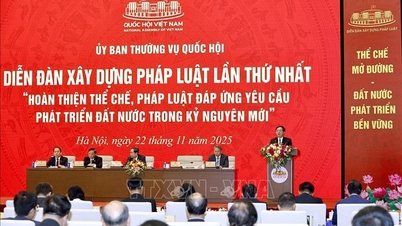


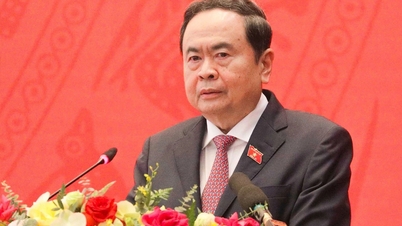







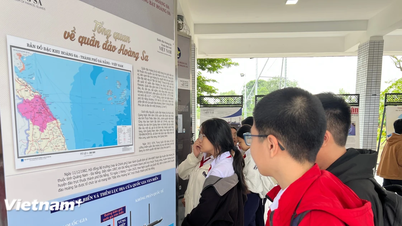

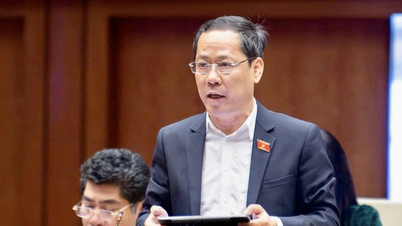
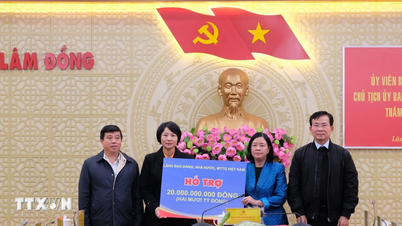
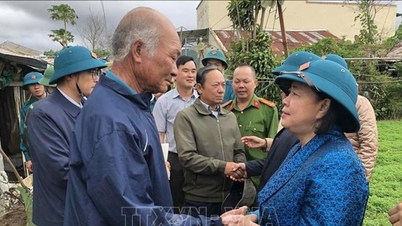




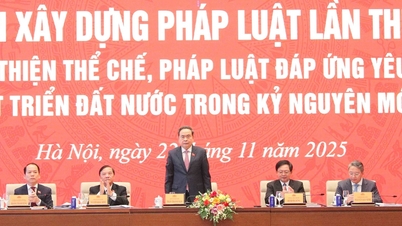
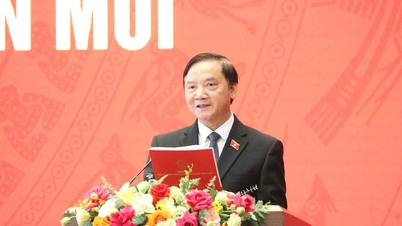
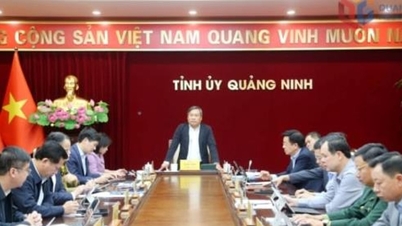

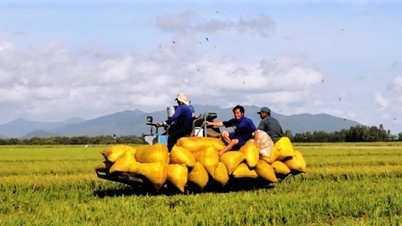
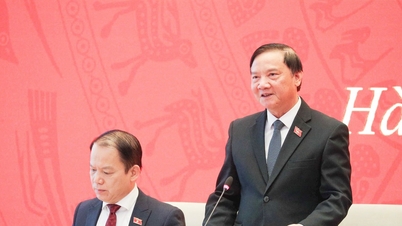

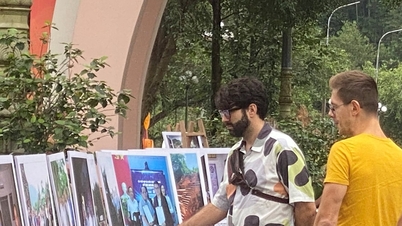



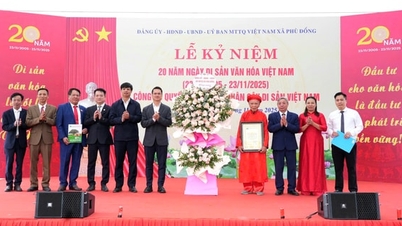




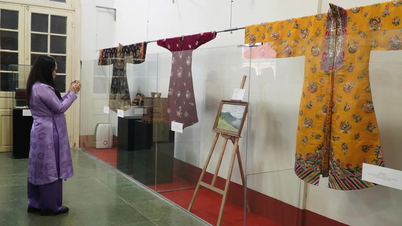

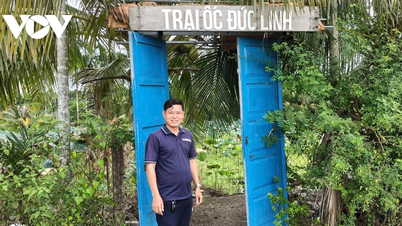

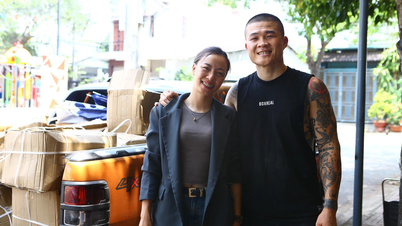




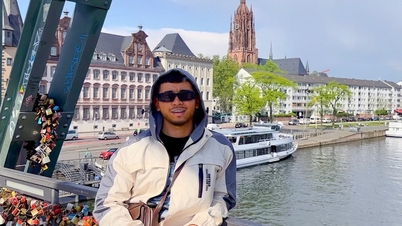










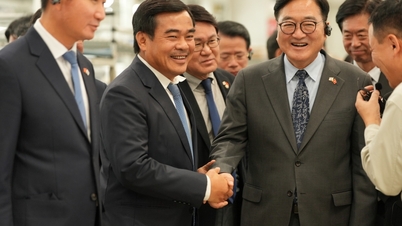















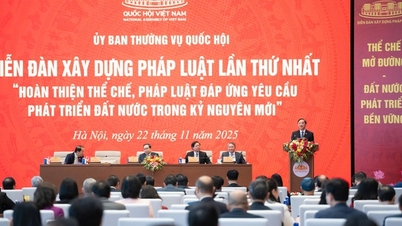

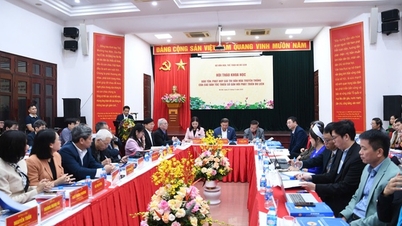

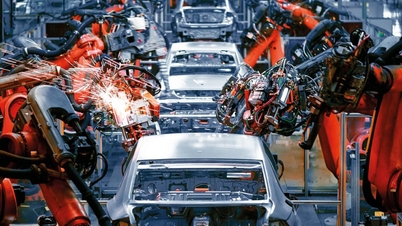



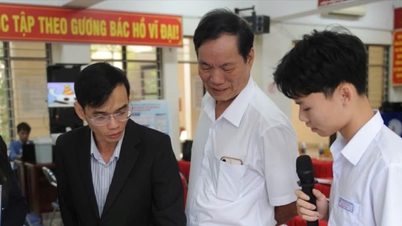


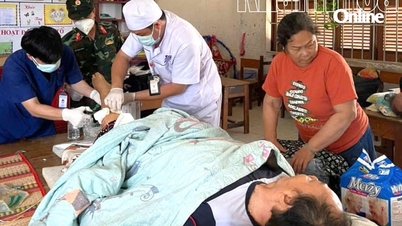

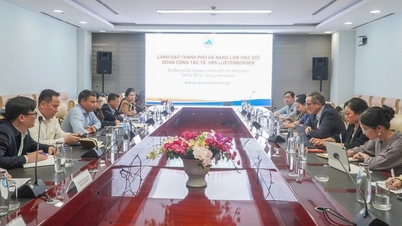
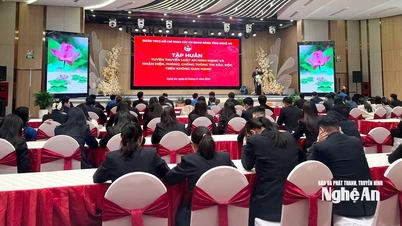










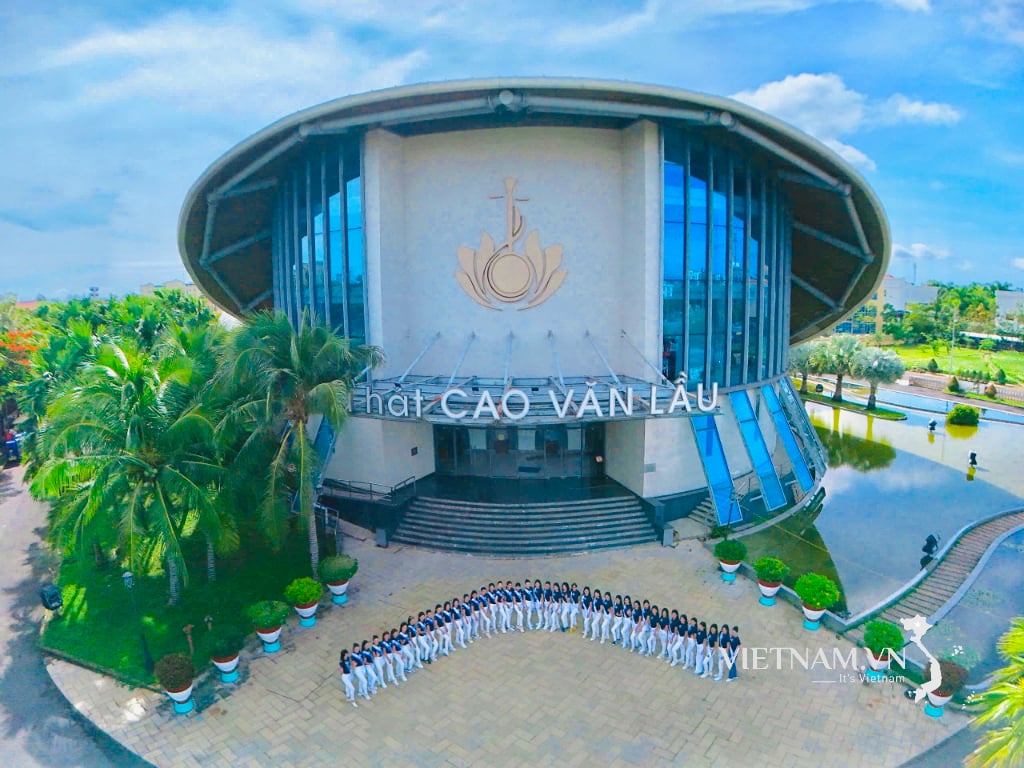



Comment (0)